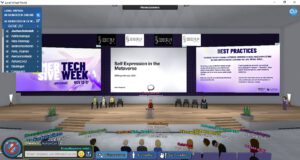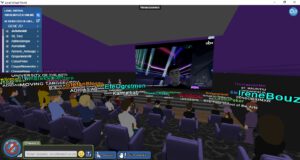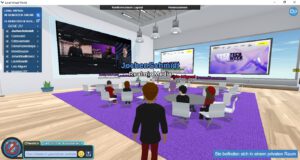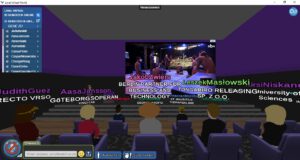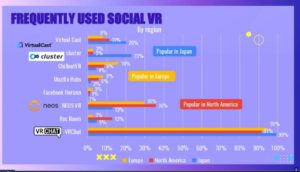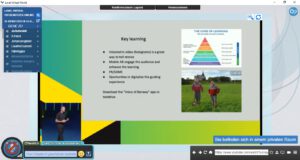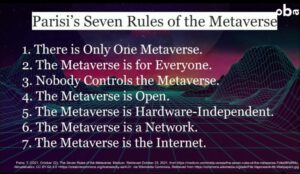After the fully virtual conference in 2020, VR Days Europe wanted to get a foot back into reality by organizing the 2021 edition as a hybrid experience on site in Amsterdam, online and in 20 international locations with satellite events. Right on the first day of the conference, the Netherlands needed to go into lockdown with curfew again. The convention went into revirtualization: in-person events could only take place under restricted conditions, mostly broadcasted with the virtual program on the Virbela platform.
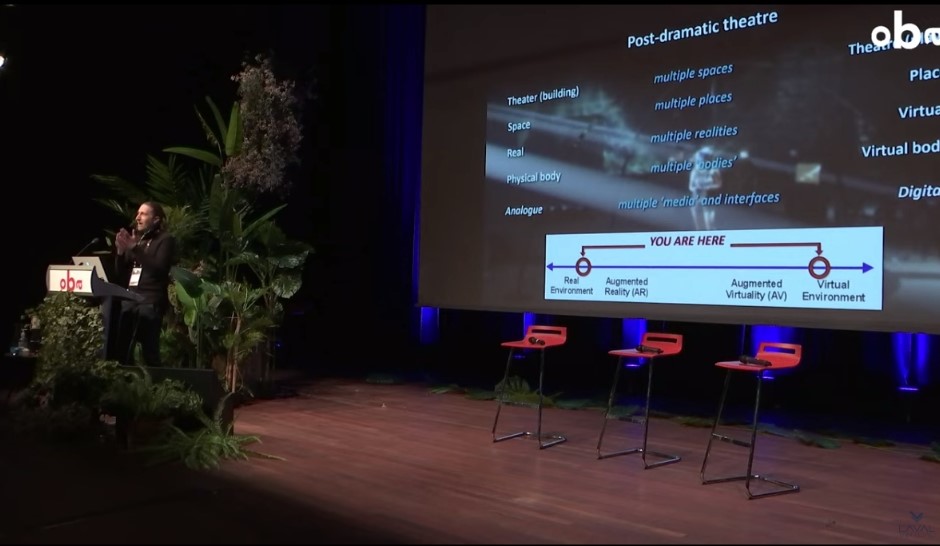
Under these conditions, the trendy Metaverse discussions became even more performant, whereas the installation works at Church of VR shrank to limited radiation on a local level. Many panels, keynotes and presentations represented rather European positions with concerns on regulation, legal issues and ethic values. Some scenarios mirrored the hybridity of the conference with real world scenarios in a very European way: a Dutch art historian reflected on NFT in the virtual art markets, while promoting at the same time her newly established museum of new media art in the city of Amsterdam.
Institutions played a dominant role at VR Days Europe. A daily track was dedicated entirely to academia, mostly presenting European cooperations. A workshop on European research funds and application formalities took half a day. Many lectures were institutionally funded, like social studies on VR behavior, technical developments in online cooperation or cultural experimentation in performance arts. Public theater and dance institutions played a major role with performances on site, stage design workshops and keynotes on hybrid live performances.
The Scandinavian region was very active with Nordic Games VR and Finnish XR partner events on the convention’s virtual broadcasting platform. Especially in the domain of education, case studies from Norway and Finland were very enlightening and looked promising for further application of XR in schools and universities.
Like other media events in our disoriented times, nearly every track, panel and lecture at VR Days Europe revolved around the Metaverse trope. Despite all the institutional efforts, a common European line of action for this conception was difficult to grasp. While the Americans seem to be determined to repeat their shady experiences with previous hype cycles – like cyberspace, new economy or social media – by even literally using the same wording of the 1990s and 2000s, Europeans now have a good chance to combine history awareness with future prospects.
Historical awareness can be provided by academics, but future prospects depend on the consumers. For the initiated, a VR headset may offer a glimpse into this future. For all others, a brick on the face will be perceived as somewhat counter-intuitive. VR Days Europe 2021 did not bridge this gap and struggled with unpredictable pandemic conditions. But as we will have to learn to dance with the virus, we may as well dance on interconnected platforms into a refined reformation of the roaring 20s.

